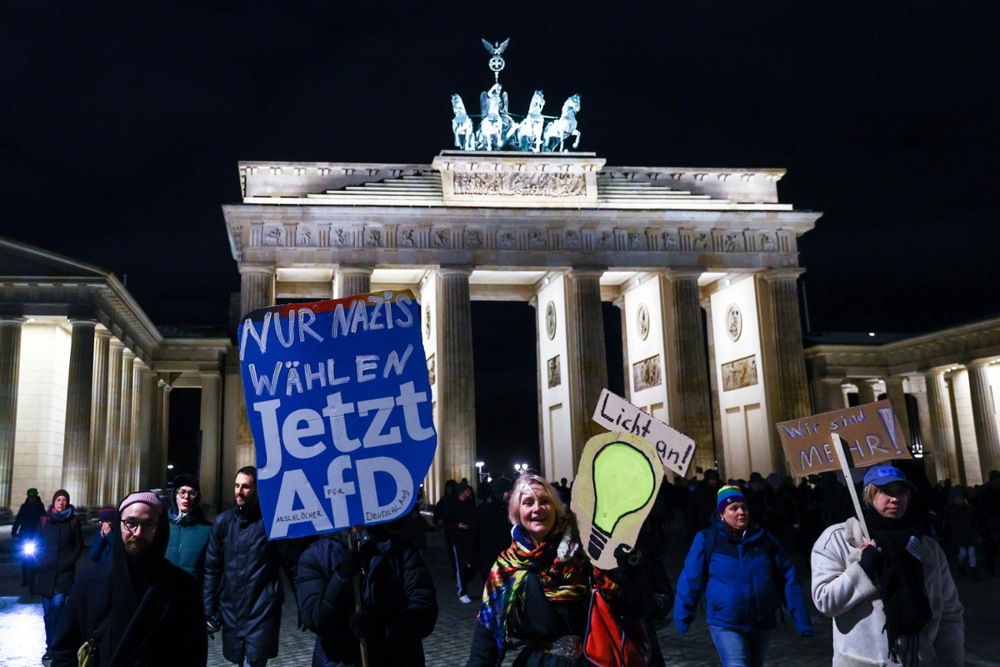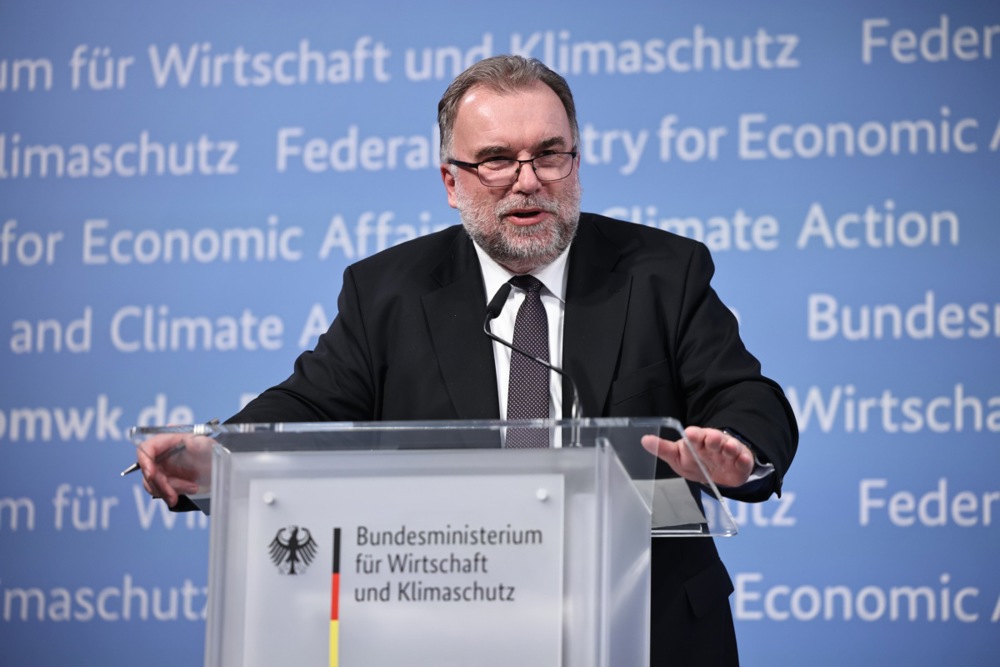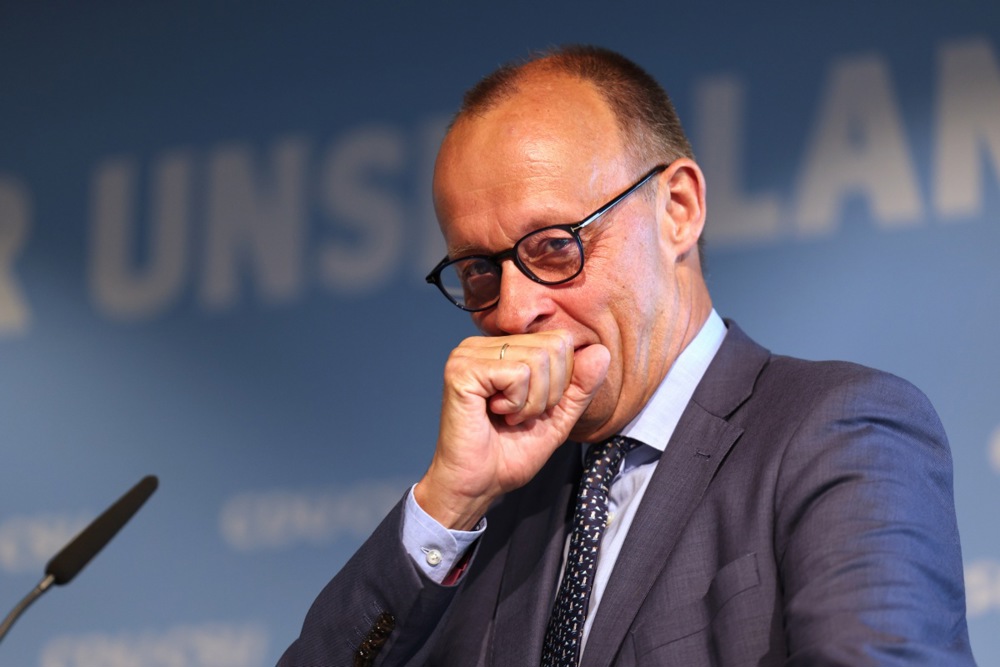The German Journalists’ Association (DJV), one of Europe’s largest journalists’ organisations, has come out against the hard Right Alternative für Deutschland (AfD) party, saying the union “will not hold any political talks with extremists.”
The journalist’ association “do not or can not make common cause with extremist political forces”, says Hendrik Zörner, the DJV’s spokesman.
“The German Journalists’ Association strictly rejects all forms of political extremism, regardless of their orientation,” Zörner says in a statement July 17.
“In their profession, journalists in the DJV actively stand up for democracy and its fundamental values, especially freedom of the press, broadcasting, and freedom of expression,” he continues.
“Membership in the DJV and positions that seek to restrict the freedom of the press or the free, unhindered exercise of the journalistic profession are incompatible,” Zörner says.
He notes German political reality has changed in recent years, with AfD making massive gains and the rise of the new hard left party of Sahra Wagenknecht, BSW.
But German authorities have not labelled the BSW as extremist, he notes.
Zörner refers to a July 12 position paper, written in light of the European elections a month prior and Germany’s upcoming regional elections.
In that paper, he claims the AfD is part of extreme and anti-press political forces, spreading anti-constitutional ideas about press freedoms.
From its inception, the AfD always had an adversarial relationship with many journalists, leading to the party excluding some journalists from its events.
“The more radical and extreme the party became, the more hostile its handling of reporting became,” Zörner says in the paper.
The AfD sometimes speaks of “lying press” (Lügenpresse in German), the paper says.
The German term is a loaded one. Hitler used it to describe Weimar Germany’s Marxist press, and Hermann Göring used it in his March 1933 speech during the Reichstag debate on the Enabling Act.
As a result, the AfD should not be given red-carpet treatment in talk shows or summer interviews, the paper claims.
“In addition, they provide supporters and members with false information via their own channels and use the reach of friendly right-wing extremist and conspiracy ideological media,” said Zörner.
Calls by the AfD to reform the media are an existential threat for press freedom, he said.
“The AfD and other radical, extreme and conspiracy ideological forces have promoted a social climate through hatred, agitation and malice in which attacks on journalists have become commonplace,” Zörner said.
The German Journalists’ Association will therefore not engage in political discussions with representatives of anti-constitutional parties or groups, and will not send representatives to events initiated or dominated by such parties or organisations.
Instead, they will “continue to seek solidarity with democratic social partners who position themselves against the strengthening of extremist tendencies” and “support its members if they get into trouble with anti-constitutional parties and their representatives because of their research or publications.”
Economists have expressed dismay at a sudden drop in Germany’s exports with deliveries to China crashing by more than 10 per cent in just one month. https://t.co/vUEcujL7NI
— Brussels Signal (@brusselssignal) July 9, 2024
The strong statement against the Alternative für Deutschland party occurred on the same day Germany’s government clamped down on Compact, a magazine labelled ‘right-wing extremist’ by Federal Interior Minister Nancy Faeser.
Magazine publishers and lawyers criticised the decision and invoked freedom of the press.
While distancing itself from the magazine’s contents, the Media Association of the Free Press (MVFP) said the move was one for the courts, not government ministers.
“An authorisation basis for the prohibition of the publishing house under the law of associations appears legally dubious and, from the point of view of the association, would ultimately have to be decided by the courts and not by the executive.”
Faeser invoked the Association Act for the ban, permitting the state to outlaw associations and companies that operate against the constitutional order.
“Media outlets enjoy special protection under fundamental rights. However, the Association Act’s prohibition clauses do not specify any provisions requiring particularly stringent conditions for banning an association that publishes press products,” Benjamin Lück, a lawyer for the Society for Civil Liberties, told the Catholic News Agency (KNA).
The ban was “highly problematic from a legal point of view” and there are doubts “as to whether it would stand up to constitutional scrutiny”, Christoph Degenhart, former judge at the Saxon Constitutional Court and professor of constitutional, administrative and media law at the University of Leipzig, told FAZ.
The German Journalists’ Association, though, applauded the ban against Compact.
“To put it clearly: Compact was never journalistic at any point, it was never about enlightenment, researched information and facts. Compact spread pure agitation, propaganda in its purest form. The established media were also vilified as system media and ‘lying press’,” Zörner wrote.
“Thanks to the ban, there is one fewer hate machine. If the ban is not absolutely legally watertight, Nancy Faeser’s ‘hard blow’ would be about as effective as a chocolate teapot.”
Critics have noted that prior to being spokesman of the German Journalists’ Association, Zörner worked for Germany’s Socialist Party (SPD).
He first served as an editor for the SPD party newspaper Vorwärts and later worked in the Lower Saxony State Chancellery under SPD Prime Minister Siegmar Gabriel, according to his bio.
In the document, state authorities in Germany’s east encouraged municipalities to weaponise listed building rules, environmental laws and even fire regulations to prevent right-wing groups from buying, renting or using property they legally own.https://t.co/TeK2N8VTcS
— Brussels Signal (@brusselssignal) June 18, 2024





